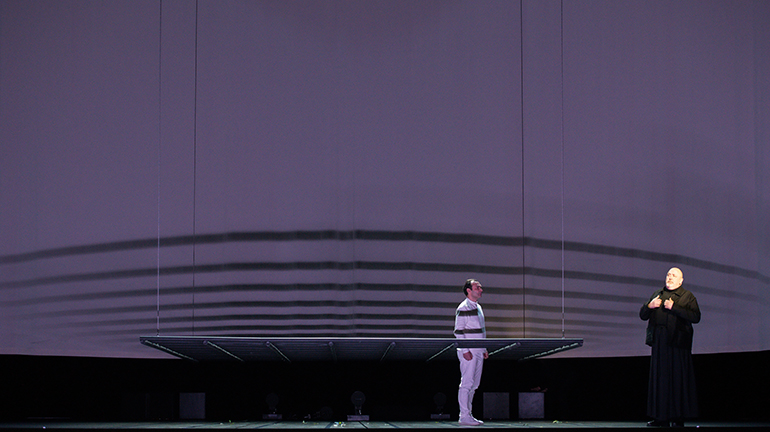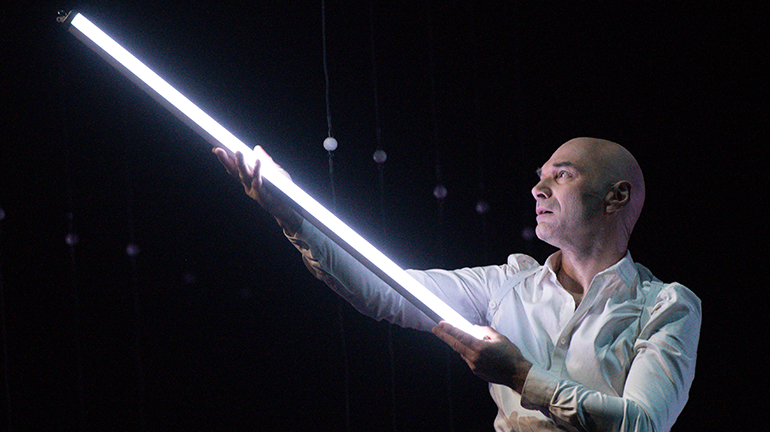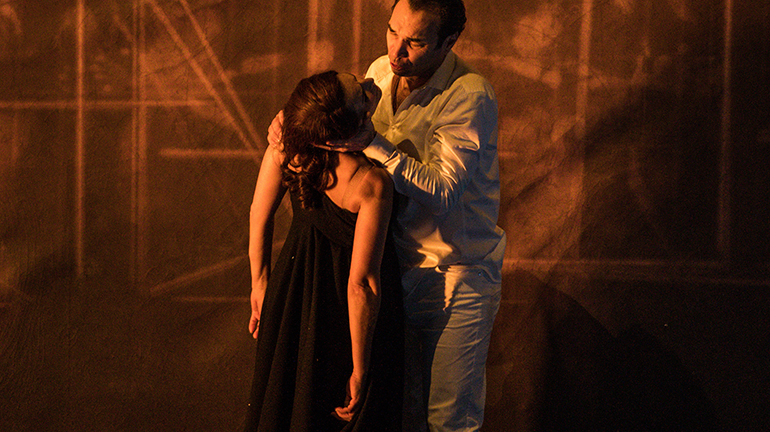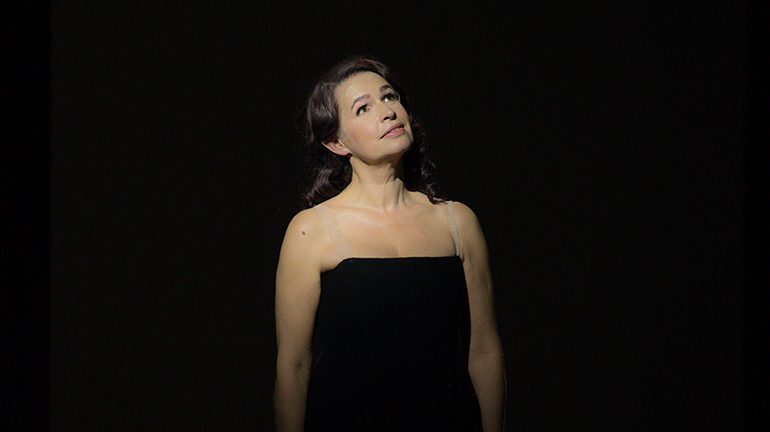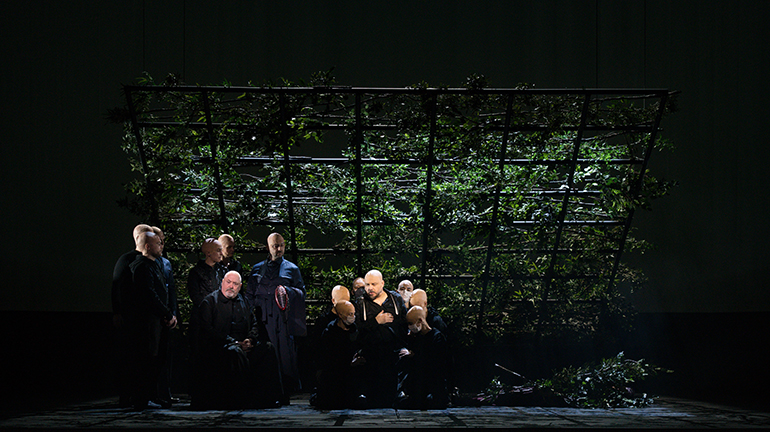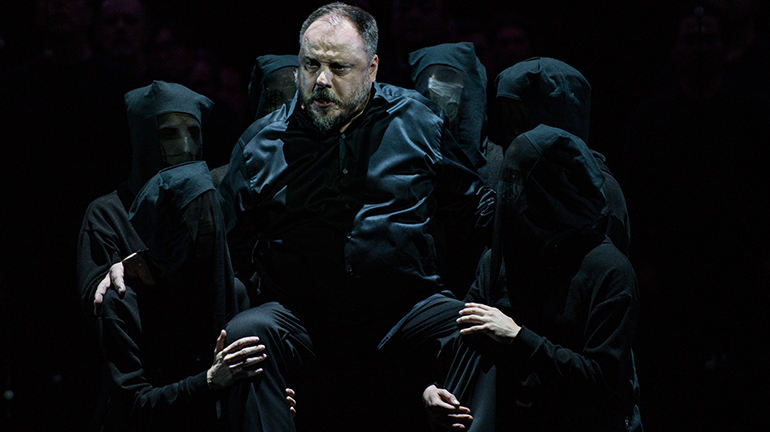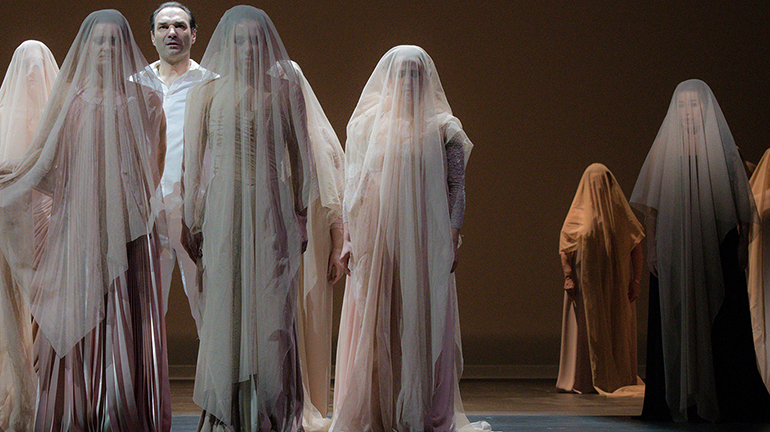de page
Parsifal
PARSIFAL THE QUEST FOR THE GRAIL
At Montsalvat, a community of knights guards the Holy Grail, chalice where Joseph of Arimathea collected the blood of Christ on the cross, as well as the Holy Lance, which caused the wound from which this blood flowed. Klingsor, who once wanted to become a Grail Knight but was rejected by his old king Titurel, began to harbor an inexpiable hatred for the Grail community, seeking by all means to lose them – even managing to steal the Holy Spear from them. The old king Titurel, too weak, left power to his son Amfortas, but Klingsor managed to wound the latter with this Holy Lance. The wound does not heal. A young knight arrives, totally innocent, pure of all sin: Parsifal. Kundry, Klingsor’s sultry helper in charge of bringing down the Grail Knights into fleshly sin, attempts to seduce the young hero. But the latter does not fall into his traps and recovers the Holy Lance, which he brings back to the community of the Grail. The community has found a new guide, and order is finally restored.
EXCEPTIONAL PERFORMERS
As early as 1845, Wagner became interested in Parzival by Wolfram von Eschenbach, an adaptation made in the 13th century of Perceval by Chrétien de Troyes (12th century), from which he had already drawn inspiration for Lohengrin (1850). Thirty years later, he goes back, with Parsifal, the course of the legend (Parsifal being the father of Logengrin). The composer once again tackles the theme of redemption, accomplished by a predestined being and consecrates the triumph of the believer over the impious. If he starts from Wolfram’s Parzival, Wagner draws on many other sources: he studies other versions and stories of the legend of Parsifal, is inspired by the philosophy of Schopenhauer and Buddhism. Such a “redemptive work of art” can only be presented, according to its author, in Bayreuth, that is to say on a consecrated stage, and not in any opera theater as a vulgar work of entertainment. Wagner obtains from Ludwig II of Bavaria that Parsifal be represented exclusively in Bayreuth, and this for thirty years. However in 1903, the Metropolitan Opera of New York will dare to represent the work which will then be it all over the world. Parsifal was Wagner’s only opera created for Bayreuth. The score and its orchestration respond to the acoustic possibilities offered by the famous “mystical” pit.
After Rise and Fall of the City of Mahagonny (Jim Mahoney) in 2010, Cavalleria Rusticana (Turridu) in 2014 and Tiefland (Pedro) in 2017, the Austrian tenor Nikolai Schukoff returns to the Capitol stage for the role of Parsifal which he performed several times since his replacement for Placido Domingo in 2007, at the Staatsoper in Munich. At his side, the French mezzo-soprano Sophie Koch will take on the role of Kundry for the first time. Sumptuous Ariane in Ariane et Barbe-Bleue by Paul Dukas here last season, there is no doubt that the splendor of her tone will reveal all the intensity of the tormented and tortured character of the Servant of the Knights of the Grail. Narrator, master of ceremonies and officiant, the role of Gurnemanz will be entrusted to the English bass Peter Rose who will make his debut on the Capitole stage on this occasion. Semperoper in Dresden, Teatro Real in Madrid and Staatsoper in Vienna are among the great operatic stages that have already applauded the German baritone Matthias Goerne in the role of Amfortas. After several recitals on our stage, including the last in 2019, the singer will offer us his interpretation of the King of the Knights of the Grail which should take on an unparalleled poetic and painful dimension. Amfortas’ father, Titurel, will play the bass Julien Véronèse, recently invited to play the role of Oroveso in Norma, and the role of the magician Klingsor will be given to baritone Pierre-Yves Pruvot. The sopranos Andreea Soare, Marion Tassou, Elena Poesina, Céline Laborie and the mezzos-sopranos Adèle Charvet and Juliette Mars will be the Filles-Fleurs. Note that Juliette Mars will give a recital on January 30 as part of the Midis du Capitole. Tenor Kristofer Lundin and bass Yuri Kissin as Chevaliers du Graal, as well as tenors Enguerrand de Hys and François Almuzara as Écuyers will complete this cast.
INTERVIEW WITH AURÉLIEN BORY FOR THE CAPITOLE THEATER
Parsifal is a very rich and complex work, full of allusions and symbols drawn from various religions and cultures… For you, what is this work really about? How would you sum it up to a neophyte?
Schematically Parsifal is a duality between good and evil, between nature and culture, between masculine and feminine, between body and mind, between shadow and light, in every human being. The quest for the Grail is based on a lack, on the idea of human incompleteness. The figure of Parsifal follows an initiatory path between purity through the ignorance of the child and that finally acquired through knowledge. In this quest, Wagner insists on the motive of renunciation. The quest for the Grail becomes, by way of immortality, the re-generation of life. Wagner uses many influences: the story of the Grail comes from Celtic mythology, it goes from Chrétien de Troyes to Wolfram von Eschenbach, who himself was inspired by a mysterious poet Kyot le Provençal. But Wagner takes it up again by trying to make the link between Christianity and Buddhism, an influence of his reading of Shoppenhauer. It is this recourse to the Orient that interested me and that I wanted to develop.
The figure of Kundry has caused a lot of ink to flow: half angel, half demon, she is the one through whom the wound comes, but also the one who heals and comforts. How do you understand this character and how are you going to deal with it?
Wagner had the brilliant idea of bringing together in a single character the two women present in the work of Chrétien de Troyes. She thus carries within herself all the ambivalence of drives, the alienation of desire and the desire for elevation. She is simultaneously the figure of the lover, the mother, the saint, the redeemer and the culprit, which makes her the most human character. So I decided to show her on set as a figure of the double. There will be alongside Sophie Koch who interprets the role the dancer Stéphanie Fuster.
Do you think that the themes contained in this opera can speak to any viewer of our time?
Our metaphysical condition, between heaven and earth, has not changed much. All the mystics in this sense come together. There are multiple entries in Parsifal, and it is always possible to enter one. For my part, I am sensitive to the use of art. It is in a way Wagner’s answer and that Dostoyevsky formulated so well, around the same time, “beauty will save the world…”.
More broadly, could you tell us a few words about your staging project: what will it look like?
what were your sources of inspiration? I was deliberately towards the figure of Mani, the Persian prophet. Mani is a figure who also offers a reinterpretation of the figure of Christ. One of the foundations of Manichaeism is to separate the world into two: the kingdom of Light, the kingdom of divine Life, where what is of eternity is expressed; the kingdom of Darkness, the kingdom of matter, the kingdom of the “dead”, where what is of space-time is expressed. Mani divides the world between darkness and light. The idea of shadow and light runs through Parsifal, it is more about their coupling, their necessary co-presence, their distinction, as much as their complementarity. I wanted to make Parsifal a shadow theatre. But the theater of shadow and light that I imagine is kinetic, it follows the initiatory journey of Parsifal. It also follows the rhythm of the permanent transformations of the music. Everything is always in motion in Wagner’s music. The patterns form and move away, as if we were always surrounded by the same influences, the same thoughts, which we seek to assemble differently and whose balance we try to find in the movement. Nothing is and everything becomes. By using shadow theatre, that is to say an ancestral form of representation, I wanted to give Parsifal a mythical and universal dimension.
FRANK BEERMAN
MUSICAL DIRECTION
The German conductor Frank Beermann has distinguished himself on the international scene both for his dazzling concert interpretations and for his numerous recordings. His insatiable curiosity for new works, the rediscovery of forgotten works but also for the re-interpretation of the basic repertoire has earned him countless prizes. Richard Wagner’s operas form an important part of his repertoire; his interpretations of Tristan and Isolde, Tannhauser and Lohengrin as part of the Wagner Projects in Minden, followed by the first three parts of the Ring Cycle at the same venue, have been showered with praise in the national and international press. The wide range of his recordings, devoted as much to the basic repertoire as to contemporary works or rediscoveries, has been widely awarded, receiving among others the “Echo Klassik” of 2009 and 2015. For many years now, Frank Beermann has devoted himself intensely to the symphonic works of Strauss, Mahler and especially Bruckner. Over the past ten years he has conducted the complete symphonies of Beethoven, Brahms, Schubert, Schumann, Mahler (except the 8th) and Strauss in concert series, as well as the complete concertos for piano with Matthias Kirschnereit and the Bamberger Sinfoniker. He is also working on a new cycle at the Hamm Klassiksommer, giving the complete Mozart symphonies over several seasons. From 2007 to 2016, Frank Beermann held the positions of General Music Director of the Chemnitz Theater and Principal Conductor of the Robert-Schumann-Philharmonie. Recent engagements include debuts with the Athens State Orchestra, Philharmonia Orchestra London, Aalto Theater Essen and Staatstheater Stuttgart. In 2018/2019, he conducted La Chauve-Souris and Ariane à Naxos at the Opéra de Lausanne, as well as Shostakovich’s “Leningrad” Symphony with the Athens State Orchestra. With the performances in September 2018 of Twilight of the Gods, it completes Wagner’s Tetralogy as part of the “Ring in Minden”; this ambitious project, launched in 2015 under his artistic direction, has met with dazzling success.
CASTING
Sacred scenic festival in three acts
Libretto by Richard Wagner
Created on July 26, 1882 at the Bayreuth Festival
NEW PRODUCTION In partnership with the ThéâtredelaCité – CDN Toulouse Occitanie, as part of the Portrait/Paysage dedicated to Aurélien Bory
Frank Beermann musical direction
Aurélien Bory directing
Aurélien Bory, Pierre Dequivre scenography
Manuela Agnesini costumes
Arno Veyrat lights
Nikolai Schukoff Parsifal
Sophie Koch Kundry
Peter Rose Gurnemanz
Matthias Goerne Amfortas
Pierre-Yves Pruvot Klingsor
Julien Veronese Titurel
Andreea Soare First Flower Girl
Marion Tassou Second Flower Girl / First Squire
Adele Charvet Third Flower Girl
Elena Poesina Fourth Flower Girl
Céline Laborie Fifth Flower Girl
Juliette Mars Sixth Flower Girl / Second Squire / Voice from Above
Kristofer Lundin First Grail Knight
Yuri Kissin Second Grail Knight
Enguerrand de Hys Third Squire
François Almuzara Fourth Squire
Capitol National Orchestra Capitol Choir and Masters Choir of the Montpellier-Occitanie National Opera / direction Alfonso Caiani



